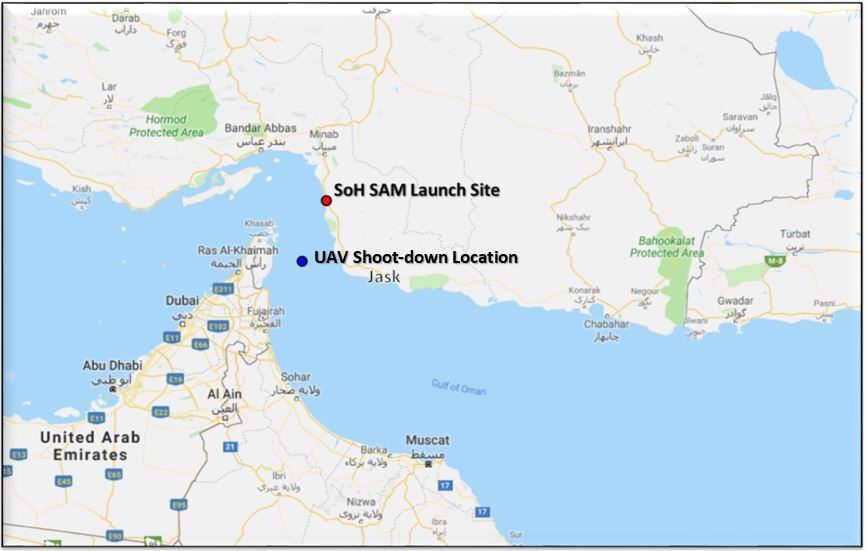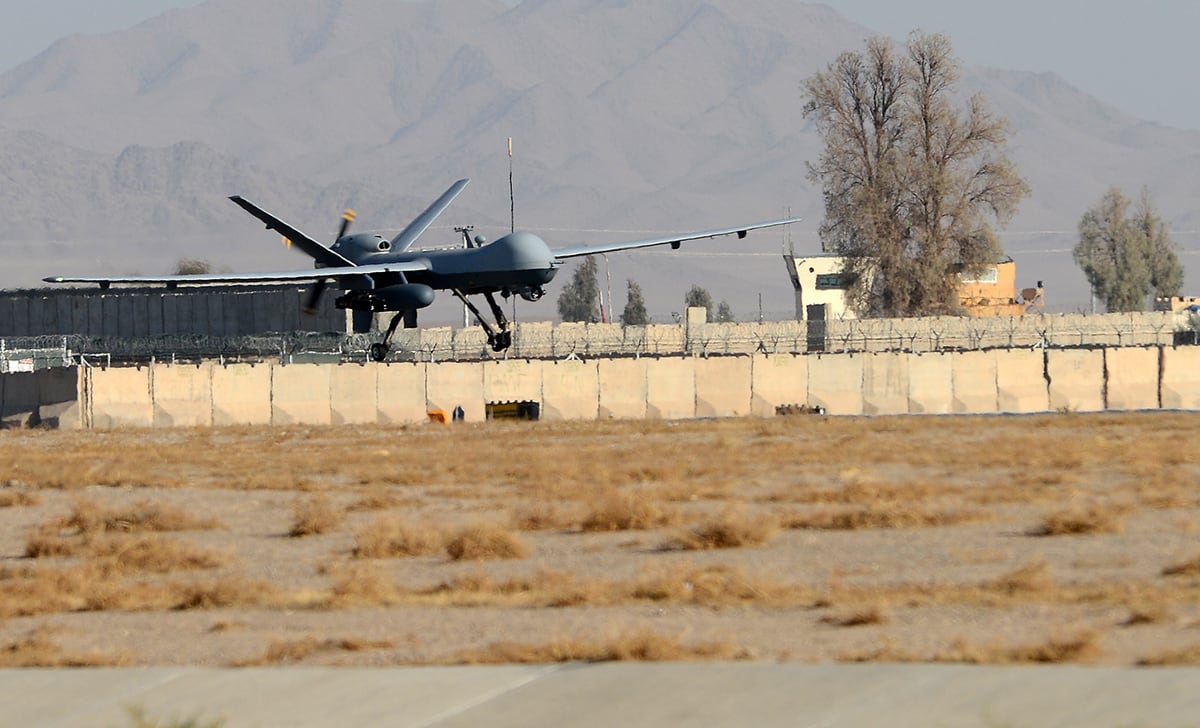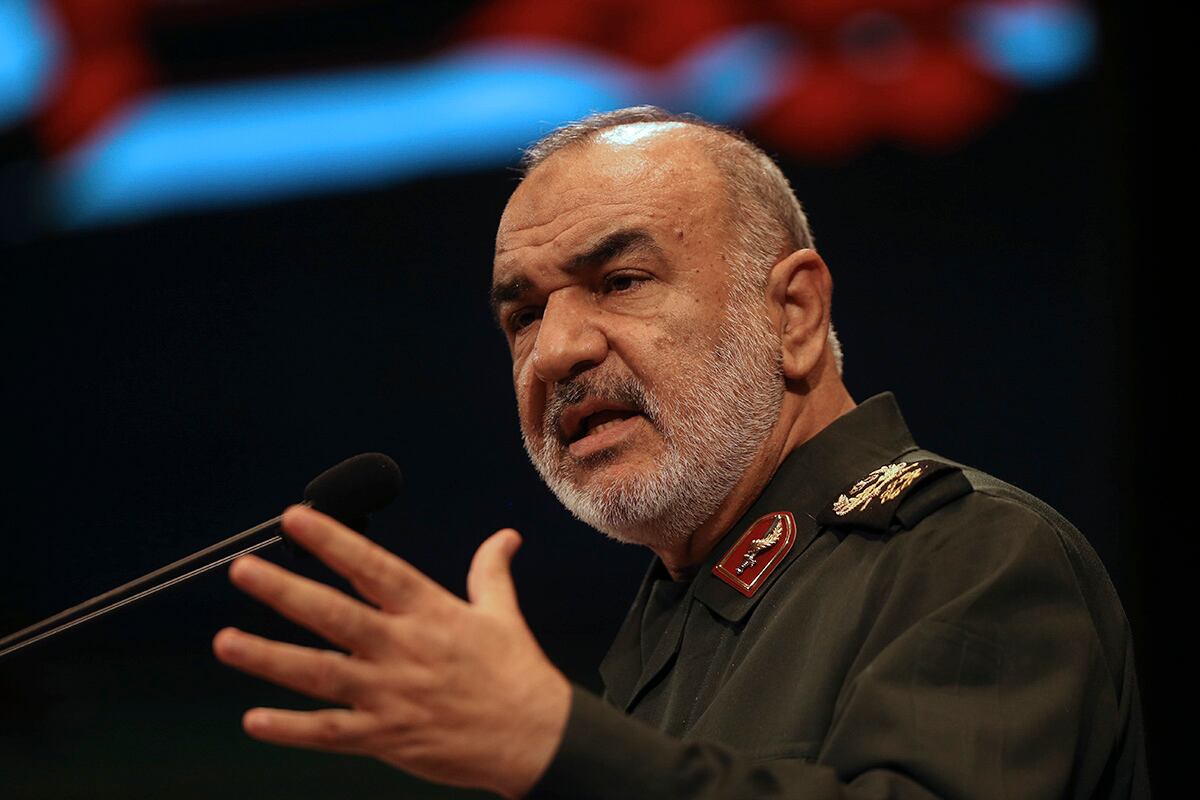The Pentagon provided reporters a map Thursday afternoon indicating that the U.S. drone shot down by Iran was over international waters, challenging Iran’s allegations that the drone was flying over Iran.
Lt. Gen. Joseph Guastella, Commander of U.S. Air Forces Central Command, accused the Islamic Revolutionary Guard Corps of shooting a U.S. Navy RQ-4 Global Hawk surveillance drone as it was flying over the Gulf of Oman and the Strait of Hormuz as part of a surveillance mission. Guastella rejected Iran’s statement that the drone was taken down over Iranian airspace, and said that the aircraft plummeted into international waters instead.
Reporters were provided a map indicating where the US military said the aircraft fell.

“This attack is an attempt to disrupt our ability to monitor the area following recent threats to international shipping and free flow of commerce. Iranian reports that this aircraft was shot down over Iran are categorically false,” Guastella said. “The aircraft was over the Strait of Hormuz and fell into international waters.”
At the time of the intercept, “the RQ-4 was operating at high-altitude approximately 34 kilometers from the nearest point of land on the Iranian coast,” Guastella said in a statement Thursday. “This dangerous and escalatory attack was irresponsible and occurred in the vicinity of established air corridors between Dubai, UAE, and Muscat Oman, possibly endangering innocent civilians.”
RELATED

Guastella’s statement came hours after Navy Capt. Bill Urban, a CENTCOM spokesman, expressed similar sentiments about the attack Thursday morning. CENTCOM also released video of the shootdown.
The head of the Islamic Revolutionary Guard Corps Maj. Gen. Hossein Salami said after the attack that “borders are our redline, and any enemy violating these borders will not go back."

“The downing of the US drone had an explicit, decisive and clear message that defenders of the Islamic Iran’s borders will show decisive and knockout reactions to aggression against this territory by any alien,” Salami said, according to Tasnim News Agency.
Although he claimed Iran wasn’t interested in starting a war, he noted that Iran is ready to defend itself.
“Today’s incident was a clear sign of such a precise message,” Salami said.
Ret. Adm. William Fallon suggested Iran’s latest actions were likely an attempt to undermine support for the U.S. from other countries.
“Clearly the Iranians are unhappy with the pressure that the administration has put on them and they’re trying to figure out a way to push back on it,” Fallon said.
“I think the objective is to either directly get us to back off, or more likely, to create a situation where others don’t support the U.S.," he added.
The attack coincides with escalating tensions between the U.S. and Iran. For example, the U.S. has blamed Iran for attacking two oil tankers near the Gulf of Oman. However, Iran has refused to take responsibility for the attack.



